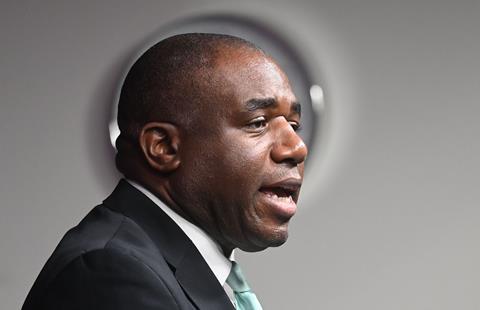An acknowledged problem with short ministerial stints is that government departments lack the benefit of ministers who are sufficiently on top of their brief to lead.

Might David Lammy, our 11th justice secretary in 10 years, be different? On a central challenge for the Ministry of Justice – race inequalities in the criminal justice system – he should, by his own account, need the very shortest of inductions. ‘We do not need another review, or report, or commission to tell us what to do,’ Lammy wrote in 2020. ‘I personally made 35 recommendations in the Lammy report on inequality in the criminal justice system.’
Lammy’s report was completed in 2017, and his 2020 comment was made against the backdrop of the Black Lives Matter movement gaining global traction. By contrast, 2025’s backdrop is George Crosses and Union flags, a ‘small boats’ political crisis and Reform UK out-polling the government.
And yet, this is Lammy’s big chance. In 2017, he noted: ‘The economic cost of BAME over-representation in our courts, prisons and Probation Service is estimated to be £309m a year.’ An even more serious consequence of such over-representation, he argued, was ‘wasted lives, a source of anger and mistrust’. His ‘biggest concern’ was the youth justice system.

Acknowledging that some causes ‘lie outside the CJS’, he nevertheless believed that ‘our justice system is powerful and far reaching’. If such conviction has followed Lammy into office, he can now act.
The report called for consistent and comprehensive data collection across the criminal justice system and an ‘explain or reform’ approach to demonstrable disparities. A ‘deferred prosecution’ model was urged, allowing for ‘interventions before pleas are entered rather than after’. What else? ‘The government should set a clear, national target to achieve a representative judiciary and magistracy by 2025.’ (That becomes 2032, if he starts now.)
‘Performance indicators for prisons that aim for equality of treatment and of outcomes for BAME and white prisoners,’ was another. He wanted magistrates to improve their knowledge of rehabilitation by following some cases from start to finish.
Many readers will disagree with that agenda, and the political climate seems not ideal for its realisation. But if he is in earnest, Lammy won’t get a better chance to change the justice system along the lines he argued for. After all, he doesn’t need another review.































No comments yet